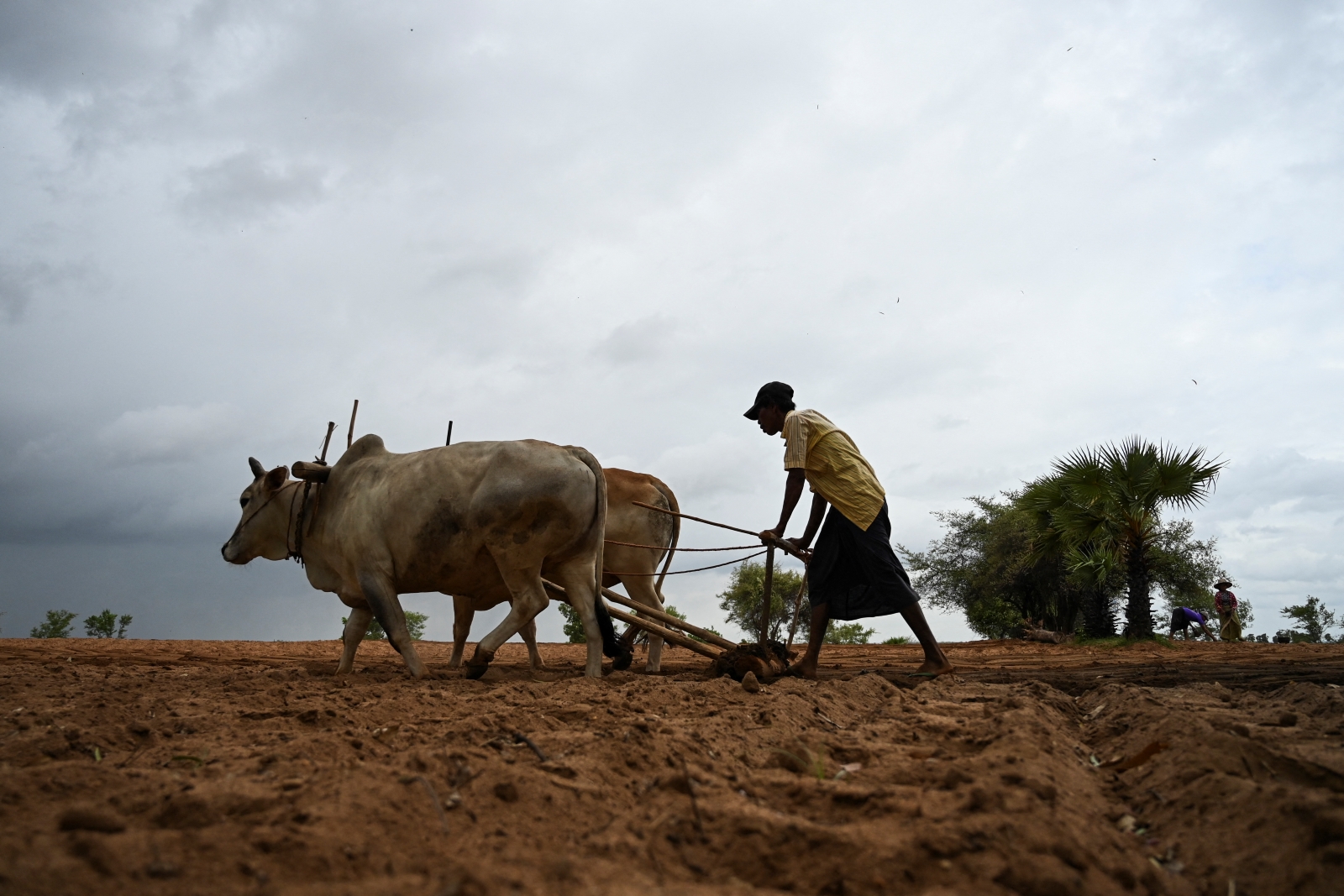The depreciation in the value of the kyat and the currency’s volatility is creating a headache for a government grappling with a faltering economy and burdened by a huge budget deficit.
By SITHU AUNG MYINT | FRONTIER
STATE COUNSELLOR Daw Aung San Suu Kyi has admitted that in the seven months since the National League for Democracy government came to power the economy has not improved as expected and is showing signs of faltering. She made the frank assessment at a meeting with entrepreneurs and development partners in Nay Pyi Taw on October 22.
As the government struggles with a faltering economy its task is being made more challenging by fluctuations in the value of the kyat, a situation that affects ordinary citizens as well as Myanmar entrepreneurs and foreign investors.
Some, however, are benefitting from this situation. This week I would like to discuss the reasons for the currency fluctuations and what can be done about them.
On April 1, when the NLD came to office, the exchange rate was K1,200 to one US dollar. The dollar has strengthened in recent weeks and on October 25 the exchange rate was K1,295. The Central Bank of Myanmar’s official exchange rate was K1,282.
Support more independent journalism like this. Sign up to be a Frontier member.
In the seven months since the change of government the value of the US dollar has risen by K95. As well as depreciating against the greenback, the kyat has also fallen in value against the Thai baht, Chinese yuan and Singapore dollar. The value of the kyat has depreciated 8 percent in seven months. That’s a lot.
Under the NLD government, the value of the kyat has not only depreciated but also fluctuated. For example, the exchange rate on October 4 was K1,290 to the US dollar but on October 11 it fell to K1,244, only to rise again, to K1,295 on October 25. This means that starting from October 4, the kyat lost 4 percent in value in one week and two weeks later rose by 4 percent. These figures show instability in the value of the kyat.
It is not easy to solve the problem of the depreciation of the kyat in the short term because the root cause stems from the government’s huge budget deficit, the trade deficit and other factors. The problem of the budget deficit was inherited from the previous government.
In this difficult situation, the decision by the Union Parliament to increase the allocation for agricultural loans has created an extra burden for the government, which is already struggling with a budget deficit. An official from the Central Bank was asked to address the Union Parliament to explain the implications of its decision.
He explained that the amount of money in circulation was not enough for the agricultural loans. The loans could be covered by the sale of treasury bonds or by printing more money. However, the official warned that the latter course would contribute to inflation, which is already a concern.
The instability of the kyat is a separate problem. The exchange rate of the kyat against foreign currencies is fixed by the Central Bank. Authorised private banks and money-changers are supposed to trade foreign exchange at a certain percent of the rate fixed by the Central Bank.
Private banks and money-changers buy the foreign exchange they want from the Central Bank to make their own trade in foreign exchange at a price fixed by the Central Bank. But the problem is that the Central Bank cannot meet the demand for foreign exchange from banks and money-changers. They can’t buy the amounts they need.
Consequently, banks and money-changers do not trade foreign exchange at the official rate with customers. If the street price is higher than the official price, the banks and money-changers close their counters. They get as much profit as they are allowed to buy foreign exchange from the Central Bank at a fixed price. The result is a growing black market that produces instability in the value of the kyat against the dollar.
Although private banks, authorised money changers and those who play the black market benefit from the situation, the public and the economy suffers.
The NLD government should try to reduce the depreciation in the value of the kyat and stabilise the foreign exchange market as soon as possible.






